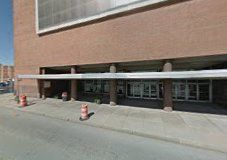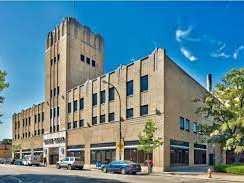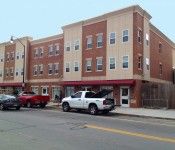As the third most populous city in New York State, Rochester is a thriving community working hard to provide supportive housing options for its residents. These housing options range from government-subsidized units to non-profit run transitional housing, all designed to support homeless individuals and families, those living with disabilities or health conditions, senior citizens, and low-income residents. Here's a comprehensive look at what the Rochester community offers by way of supportive housing.
The Rochester Housing Authority (RHA) administers the U.S. Department of Housing and Urban Development's (HUD) Section 8 Housing Choice Voucher program. This federal subsidy allows eligible low-income families, elderly, and people with disabilities to rent safe and sanitary housing in the private market. Tenants pay a portion of their income (usually 30%) toward rent, and the remainder is covered by the subsidy.
The New York State Supportive Housing Program (SSHSP), administered through the Office of Temporary and Disability Assistance (OTDA), also provides funding for supportive housing in Rochester. The program funds projects that provide housing and supportive services to homeless individuals and families, those at risk of homelessness, and those who need support to live independently.
Rochester is home to several non-profit organizations that provide or advocate for supportive housing. Among them is PathStone Corporation, which owns and operates a variety of housing options for low-income individuals and families, as well as elderly and disabled citizens.
Person Centered Housing Options (PCHO) is another non-profit organization in Rochester that focuses on supporting people experiencing homelessness to obtain and sustain housing. PCHO provides housing placement services, advocates for affordable housing policies, and provides supportive services to help individuals and families achieve housing stability.
Transitional housing is an option in Rochester, aimed to bridge the gap from homelessness to permanent housing by offering structure, supervision, support, life skills, and education. This form of housing can serve to break the cycle of homelessness and financial instability. Sojourner House at PathStone provides residential services for homeless women and children, offering both emergency shelter and transitional housing, along with case management and support services.
Rochester also has housing options specifically for homeless veterans, such as the Richards House, a program of Veterans Outreach Center. It provides transitional housing, case management, and a supportive community for veterans working towards independent living.
Lifetime Assistance, Inc. offers a variety of supportive housing options for individuals with intellectual and developmental disabilities. Its person-centered programs include supervised group homes, supportive apartments, and independent living programs, all designed to encourage individuals to develop their skills and independence.
In a city as diverse and extensive as Rochester, it's reassuring to see a broad variety of supportive housing options that cater to many needs. The mix of federal and state subsidies, non-profit interventions, and transitional housing facilities ensure that everybody, regardless of their circumstances, can find a place to call home. The city's commitment to outcome-focused, person-centered housing solutions serves as a model for other cities nationwide.




